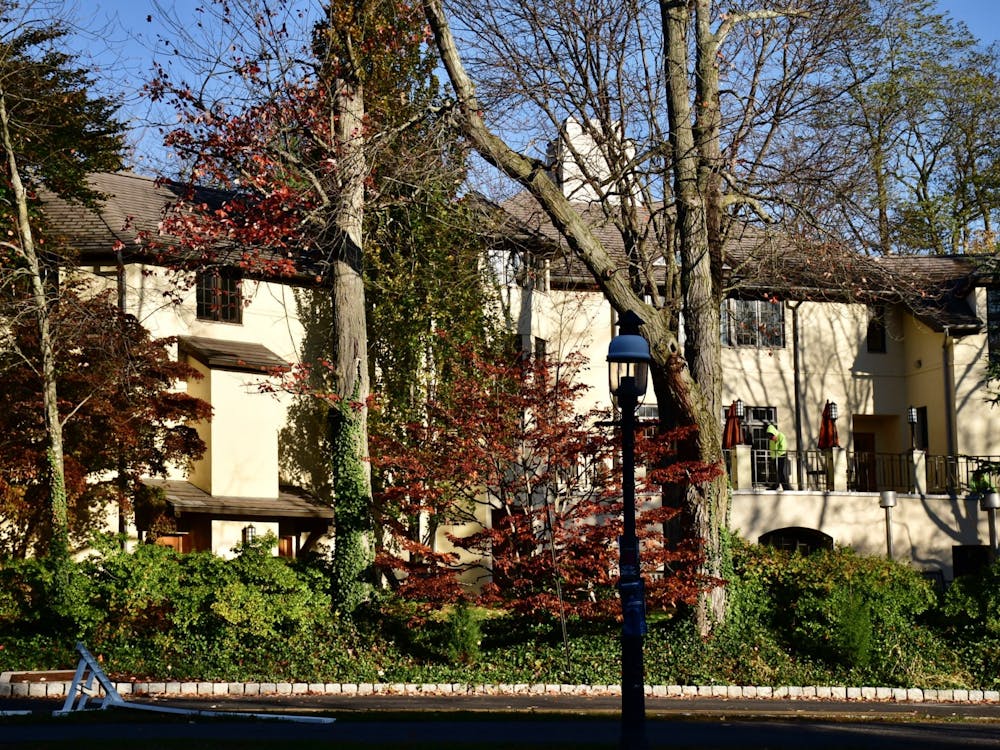The Pre-Rade should have been about unity. Everything in the setup of the day suggested togetherness: upperclassmen cheering as they welcomed the freshmen to the Princeton community, flags waving, the band playing. But as I looked around at my 1300 classmates, I didn’t see cohesion; I didn’t see a unified group of my peers beginning a journey together. I saw a class divided into six residential colleges, separated by colored T-shirts, each college commencing an individual journey.
During the opening ceremonies just before the Pre-Rade, I, in my blue shirt, was with some kids from Butler who somehow missed the official call to enter the Chapel. To our dismay, we were ushered in with the green-shirted Rockefeller freshmen. Inside, our blue shirts isolated us from the surrounding green shirts and made us feel deserted by the Butler community we had been forced to embrace since move-in day. In that moment, I felt connected to Butler, but only because I was lost and confused, not because I felt pride in a residential college I had only called home for a week.
It had been a good week, though. Life is great in new Butler. I love my roommates, the kids in my ’zee group are genuinely nice human beings and my residential college adviser recently filled our kitchen fridge with pizza. I’m thankful for my air conditioning, my spacious bathroom and my common room full of natural light. On Sunday mornings, I would wait longer for an omelet from Wu than I would for the Messiah. I’m writing this from a room in the basement that contains comfortable chairs, a pool table and a piano currently being played beautifully by a self-deprecating girl from the dorm across the way.
But this is all my residential college has been good for so far. Princeton’s attempts to make me a crazed devotee of Butler are off-putting and confusing in their intensity and irrationality. In doing so, Princeton is asking me to bypass one of the most important parts of college: the discovery of who I am and what I believe in. The rest of my college experience has been propelled by my own choices. I’ve joined extracurricular groups because of lifelong passions and made my closest friends because of hour-long conversations, not geographical proximity.
I understand why diSiac chants its own name before a performance and why upperclassmen walk around wearing shirts with their eating club’s logo on them. But I don’t understand why I’m expected to feel loyalty to a group I had no say in joining. I don’t understand why, at an event called “Clash of the Colleges” during freshmen week, I found myself screaming the vaguely witty pun on “Wu” and “woo!” the RCAs had concocted. I don’t understand why Shirley Tilghman gave us a score for this cheer on a scale of one to 10. (We got a seven.) And I absolutely do not understand why I was commanded to shuffle across the gym floor while keeping a balloon trapped between my neck and a strange boy’s back, all for the glory of the residential college I had lived in for a week.
I’ve heard that Princeton is encouraging residential college life as a social alternative to the eating clubs, but providing residential colleges with the resources they need to create a multifaceted living environment should be almost — if not entirely — sufficient. What’s missing, of course, is the social support provided by eating clubs. This is why freshmen are asked to participate in events like “Clash of the Colleges”: to forge the kinds of bonds that other social activities create. But the side effects of this — the unnecessary competition, the self-imposed isolation that happens when all of your friends live on your floor, the absurdity of cheering for kids wearing the same color shirt as you and booing those who aren’t — outweigh the benefits of getting along with the quad next door.
My problem isn’t with the T-shirts. They’re free and in pretty colors, and I’ll take as many as Butler gives me. It isn’t the T-shirts’ fault that I ask people I’ve just met what residential college they’re in as if their answer will reveal something important. My problem is with the administration’s insistence that I become a Butler fanatic at the expense of my integration into the rest of campus life.
We all go to Princeton, a place that has created movers and shakers and everything else our fifth grade teachers told us we could be if we believed. Princeton chose us and we chose Princeton; it’s a relationship fed by mutual love and pride. But we did not choose our residential colleges. The most important function a residential college serves is a spatial one; it’s a location that my friend from another residential college and I must take into consideration when figuring out the most convenient place to meet before walking together to dinner, the Street or a play. Once we get there, we will see students from Butler, Forbes, Mathey, Rocky, Whitman and Wilson, because we go to Princeton and they do too, and, for the next four years, that’s what matters.
Susannah Sharpless is a freshman from Indianapolis, Ind. She can be reached at ssharple@princeton.edu.








